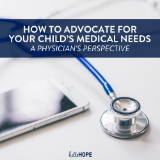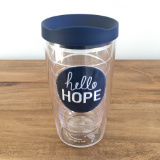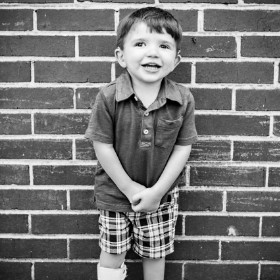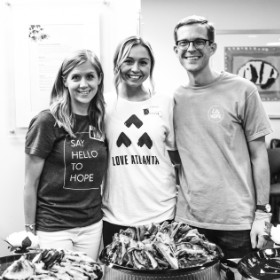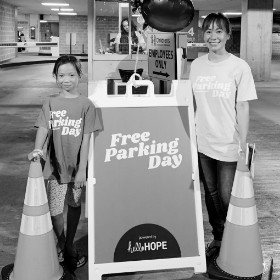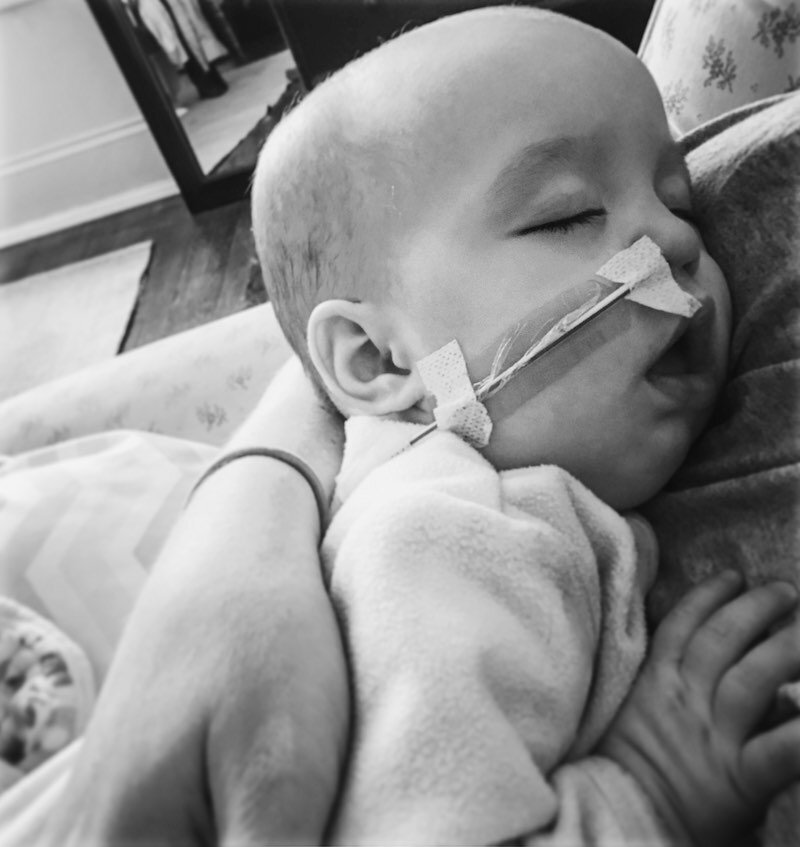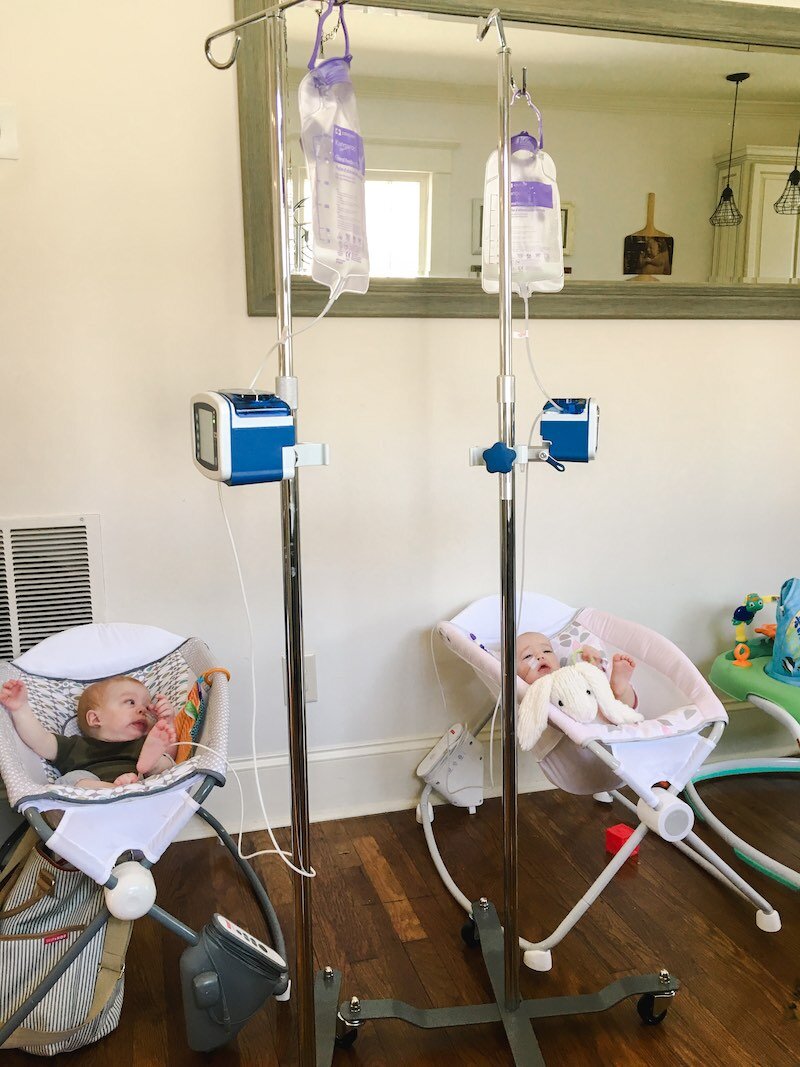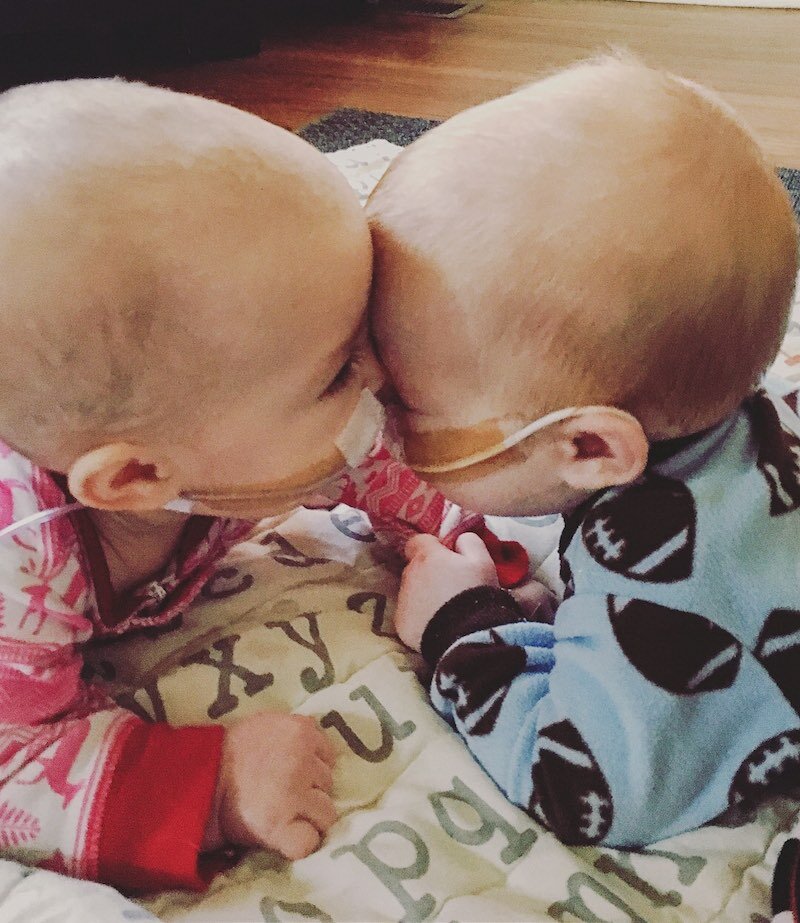God Will Never Give You More Than He Can Handle
I collapsed in a nearby glider with my six month old baby girl. We spent the past twenty minutes or so threading a plastic tube down her nose and into her stomach. She fought it with everything her little body could muster. Now, she was asleep.
Hope was our healthy baby. We called her “Little Miss Piggy” because she was a content, happy, and fat little baby. This was a huge blessing considering we had been in and out of the hospital with her twin brother, Ransom. Ransom had a long list of diagnoses, and doctors referred to him as “medically fragile.”
Another Child Unexpectedly Diagnosed
While our eyes were glued on Ransom, we missed that Hope had begun displaying some of the same symptoms—noisy breathing, unexplained weight loss, and eventually difficulty eating. At first I assumed that I was paranoid after six months of caring for her twin brother. I took her to an ENT just to be sure, and the doctor diagnosed her on the spot. Not only did she have the same airway disorder as Ransom (a milder version), but she also had the same swallowing disorder.
Hope’s doctors emphatically recommended that she, like her brother, be fed by a feeding tube. I was devastated! This was my healthy baby — my “Little Miss Piggy.” Well, not anymore. At this point she refused to eat and was rapidly losing weight.
The feeding pump and supplies arrived at our house and sat by the front door for days. I was in denial that she truly needed this medical intervention. I couldn’t bear the thought of having two babies feeding by tube. We eventually heeded the doctor’s advice and placed the tube ourselves at home. Despite all the practice and experience we had with Ransom, it was absolutely nauseating to do this to Hope. I hated hurting her, even if it was for the best. After we successfully placed the tube and taped it to her face, she fell asleep immediately in my arms — utterly exhausted from the ordeal. I collapsed in that nearby glider and wept.
Will God Give Me More Than I Can Handle?
A couple people offered their encouragement that day and said, “God will never give you more than you can handle.” I know that they meant well and loved us, however something about that statement did not sit right with me as I processed it.
It bothered me that the action of the statement placed me in the center — I am the one that must handle this trial. I need to muster up the strength to get through this. I knew I could not!
If you are a parent of a child with a diagnosis of some kind, I can almost guarantee that you have heard some version of this statement. I would love to offer you some relief: you do not have to handle this trial. It is absolutely ok if you feel broken and unable to take one more step forward.
What Does the Bible Say?
The phrase “God will never give you more than you can handle” is not in the Bible as it pertains to trials and suffering. The Bible does say that God will never allow us to be tempted more than we can bear and will provide a way of escape (1 Corinthians 10:13). I believe well-meaning people have taken this verse about temptation and applied it to sufferers as a way of encouraging them. However, please know that you do not have to handle the trial you are facing alone. God is not asking you to be strong in your own strength.
That day in the glider, the Holy Spirit used the Word of God to encourage my faint heart. Paul writes to the Corinthians:
“For we were so utterly burdened beyond our strength that we despaired of life itself. Indeed, we felt that we had received the sentence of death. But that was to make us not rely on ourselves but on God who raises the dead. He delivered us from such deadly peril, and he will deliver us. On him we have set our hope that he will deliver us again. You must help us by prayer, so that many will give thanks on our behalf for the blessing granted us through the prayers of many.” 2 Corinthians 1: 8-11
As I thought about these words, I felt the adrenaline of the past six months fade away. We had been relying on God for strength, but I think we were relying on ourselves too. We were pushing… pushing to be excellent parents, pushing to keep a smile on our faces, pushing to “handle” the trial God set before us.
Paul’s letter reminded me that in the midst of feelings of despair, I should not rely on myself. My weakness pushes me to absolute reliance on God—the One who has the power to raise the dead. On Him we must set our hope. In the same way that Hope collapsed in my arms after fighting her tube placement, I collapsed in the arms of the Lord, completely unable to take one more step without Him.
God Can Handle It!
I have difficulty recalling the details of the weeks and months that followed. But I do know this: the strength of God carried us forward. I could not handle having three young children, two of them with medical challenges. I am far too weak! But Jesus, who defeated death—He can handle it!
I love that after Paul confesses his weakness and despair to the Corinthians, he asks for prayer. This is such wisdom! When we tell ourselves the truth—that our strength is not enough to get through a trial—we are freed up to use God’s strength and able to confidently ask for prayer from others.
God gets all the glory for our weakness! May it never be said that I handled having medically complex twins well. I absolutely crumbled in my own strength. All credit is due to Christ alone.
If you are facing an impossible task as you care for your child with special medical needs, rest in knowing that God will never give you more than HE can handle. Your weakness is an invitation to rest in His strength.
“But we have this treasure in jars of clay, to show that the surpassing power belongs to God and not to us. We are afflicted in every way, but not crushed; perplexed, but not driven to despair; persecuted, but not forsaken; struck down, but not destroyed; always carrying in the body the death of Jesus so that the life of Jesus may also be manifested in our bodies.”
2 Corinthians 4:7-10

About the Author
Mary Brantley Meade lives in Atlanta, Georgia with her husband and three young children. Her background is early childhood education, and she most recently received a masters in counseling from Westminster Theological Seminary. When she’s not counseling or writing, you can find her enjoying the outdoors with her family.





